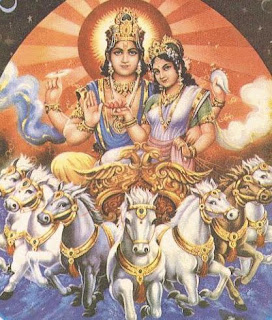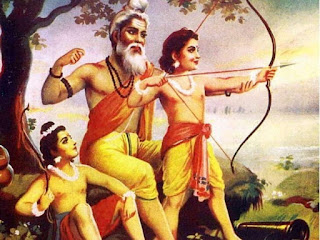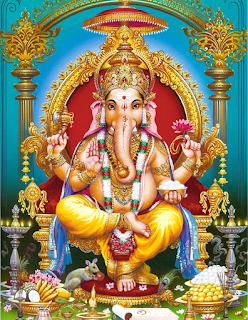Gandiva is the bow of Arjuna, one of the five Pandava brothers. Arjuna is the central character of Hindu epic Mahabharata. Gandiva bow was created by Hindu God Brahma.
Gandiva bow was given to Arjuna by Lord Agni. The bow made Arjuna really strong during the Mahabharata war.
After the Kurukshetra war, Agni Dev asked Arjuna to return the Gandiva to Varuna. Arjuna abandon the Gandiva bow in the waters of the sea and thus Gandiva was returned to the gods.
Gandiva bow was given to Arjuna by Lord Agni. The bow made Arjuna really strong during the Mahabharata war.
After the Kurukshetra war, Agni Dev asked Arjuna to return the Gandiva to Varuna. Arjuna abandon the Gandiva bow in the waters of the sea and thus Gandiva was returned to the gods.












